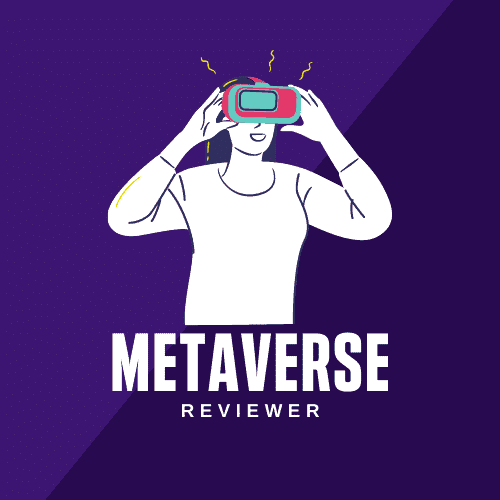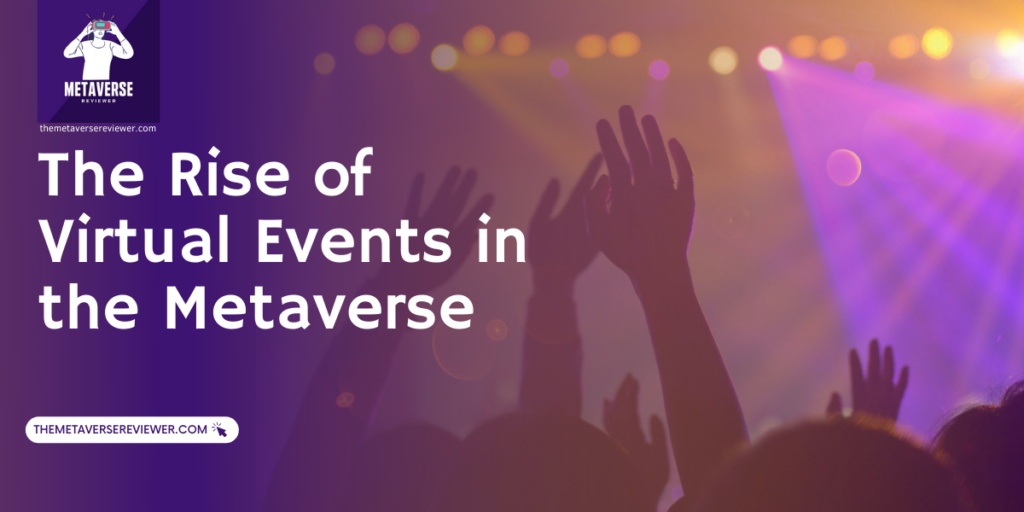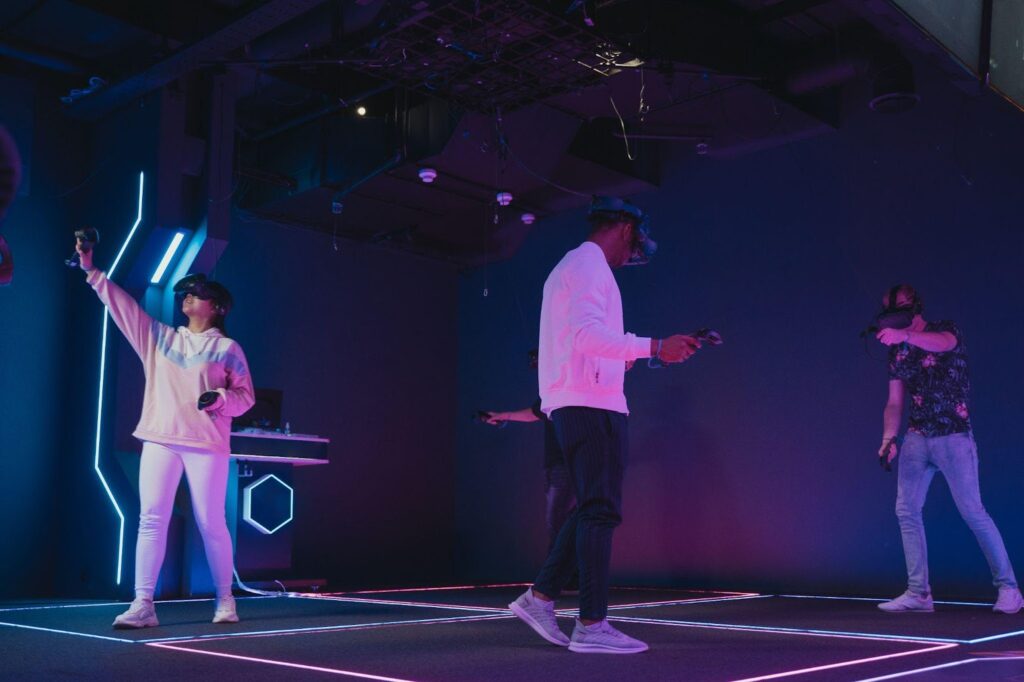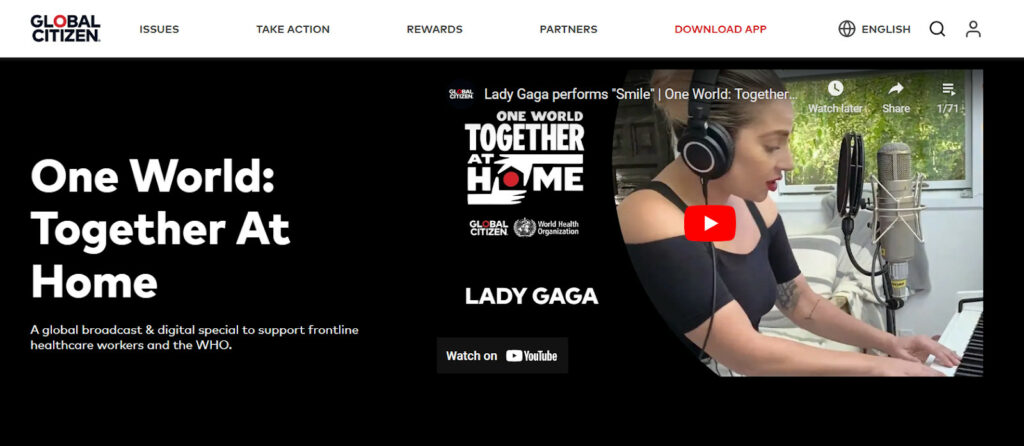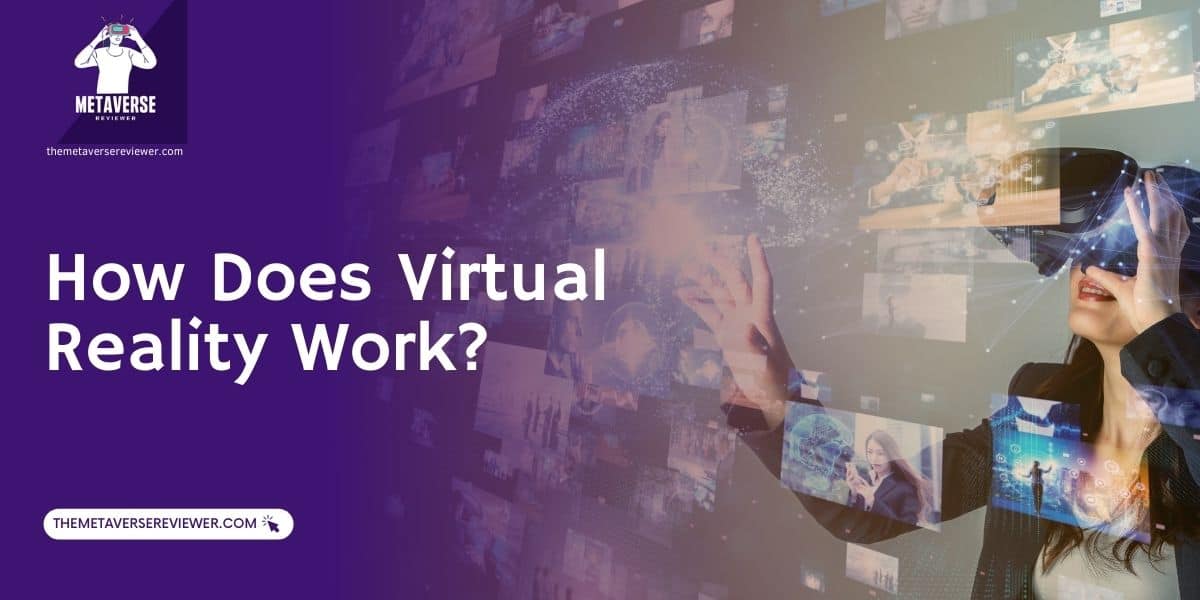As we’ve stepped into the digital age, a whole bunch of game-changing technologies have come to life. These tech wonders have transformed many industries in amazing ways. Among them, the event industry has seen a seismic shift with the arrival of virtual events, particularly within the Metaverse – the collective virtual shared space created by the convergence of physical and virtual reality. As digital interactions have become second nature to us, very quickly, we learned to understand that virtual events are more than just a passing trend. They’re growing into a key part of our online life.
But why are they becoming so popular?
Let’s take a closer look at why virtual events are believed to completely alter the way we interact with each other and the world and take a peek into what the future might hold for these experiences in the exciting world of the Metaverse.
The Growth and Popularity of Virtual Events
According to the latest industry reports, virtual events are expected to reach USD 504.76 billion by 2028, recording an estimated annual growth rate (CAGR) of 23.7% from 2021 to 2028, making it one of the most rapidly expanding sectors within the event industry.
Over the last few years, the popularity of virtual events has certainly skyrocketed. Although their surge in popularity can be attributed to a myriad of factors, undoubtedly, the global pandemic stands out as a major catalyst for shutting down events all over the world. In this scenario, the rise of virtual events wasn’t just an innovative solution—it was a necessity. It provided a vital lifeline, allowing individuals and businesses to maintain connection, engagement, and continuity during a time of global upheaval. Talking post-pandemic, virtual events proved they’re “pandemic-proof, cost-effective and they give global access to content without travel.”
Today, the virtual events industry continues to thrive, signaling a deeper shift in how people prefer to connect, learn, and engage. Virtual events offer a level of convenience and accessibility that is simply unmatched. Attendees can join from anywhere in the world, eliminating geographical constraints and travel expenses. Moreover, the advent of innovative technologies like virtual reality (VR), augmented reality (AR), and artificial intelligence (AI) has further elevated the virtual event experience, making it more immersive and engaging than ever.
Benefits of Virtual Events in the Metaverse
Let’s delve into the plethora of advantages that are making virtual events in the Metaverse the go-to choice for many individuals and businesses:
Unprecedented Reach: The Metaverse, by its very nature, breaks down geographical barriers. This means that anyone, regardless of their global location, can participate in a virtual event within the Metaverse, fostering a truly global community. You could be sitting in your living room in Sydney, Australia, and be a part of an event happening virtually in San Francisco, USA. This levels the playing field, offering equal opportunity access to anyone with an internet connection.
By comparison, in the physical world, attending an event often would require traveling to a specific location. This could pose significant challenges, including the cost and time associated with travel, and could exclude those who are unable to make the journey for various reasons.
Cost-Effectiveness: The logistics of hosting a virtual event within the Metaverse are often far less complex and expensive than hosting traditional physical events. Eliminating costs associated with travel, accommodation, venue, and food significantly reduces the financial burden on organizers.
Here are some key points that contribute to the cost-effectiveness of virtual events in the Metaverse:
- Elimination of travel and accommodation costs – Attendees and speakers no longer need to travel to a specific location, which saves on airfare, transportation, and hotel expenses. This not only reduces costs for individuals but also lowers the overall event budget, as organizers do not need to account for these expenses.
- Reduced venue costs – Renting a venue for a physical event can be expensive, especially in prime locations. Virtual events in the Metaverse remove the need for a physical space, thereby eliminating associated costs such as rental fees, insurance, and security.
- No catering expenses – Physical events often require catering services, which can be a substantial cost, especially for large-scale events. Since virtual events do not involve in-person attendance, food and beverage costs are no longer a factor.
- Lower staffing requirements – Virtual events typically demand fewer staff members to manage logistics, registration, and other operational aspects. This reduction in personnel translates to savings on hiring and training costs.
- Reusability of digital assets – When creating virtual environments and experiences in the Metaverse, organizers can reuse and repurpose digital assets for future events, reducing the need for continuous investments in new materials and resources.
- Potential for increased revenue – The Metaverse can accommodate a larger audience than a physical venue, which means that organizers have the opportunity to generate more revenue through ticket sales, sponsorships, and other monetization strategies.
Flexibility and Convenience: The flexibility and convenience offered by virtual events in the Metaverse are among their most attractive benefits. Participants have the luxury of attending from the comfort of their own homes, offices, or even while on the go. They can log in from their computer, smartphone, or VR headset, eliminating the need to travel to a specific location. This adaptability fits seamlessly into personal schedules, making it easier for individuals across different time zones to participate.
For example, with an international business conference taking place in the Metaverse, attendees from various countries can tune in without having to worry about long-haul flights or jet lag. A participant in London can attend a morning session before heading to work, while a colleague in New York can catch the same event in the early morning before their day starts. This flexibility allows for a broader audience and greater engagement.
From an organizer’s perspective, the Metaverse offers a degree of flexibility that can greatly simplify event management. Events can be scheduled, rescheduled, or even repeated with relative ease. If an important speaker cannot make the scheduled time, their speech could be pre-recorded and played during the event or rescheduled with minimal disruption.
Furthermore, the Metaverse’s virtual nature means that event spaces can be designed, modified, and optimized without the logistical challenges of a physical venue. Need to accommodate more attendees due to a surge in ticket sales? The virtual event space can be adjusted accordingly without having to worry about fire codes or seating capacity.
Immersive and Interactive Experiences: The Metaverse provides a unique platform for creating highly immersive and interactive experiences. With augmented reality (AR), virtual reality (VR), and 3D graphics, these events are more engaging and lifelike than traditional online meetings or webinars. Picture attending a music festival in the Metaverse. You’re not just passively watching the concert on a screen; you’re actively participating in a fully immersive 3D environment. You can select an avatar, dance to the beats, and even interact with other virtual attendees. Similarly, in a business conference hosted in the Metaverse, you can network in virtual lounges, interact with products in a 3D expo, or ask questions in real time during a Q&A session. The Metaverse provides an environment where attendees aren’t just viewers; they’re active participants, fully engaged and immersed in the event. This level of interactivity and immersion offers a sense of presence that traditional online platforms can’t replicate, making events in the Metaverse more memorable and impactful.
Data Collection and Analytics: One of the major advantages of hosting virtual events in the Metaverse is the rich data collection and analytics capabilities it offers. Unlike physical events, where tracking attendee behavior can be a challenge, virtual events in the Metaverse allow organizers to seamlessly collect, track, and analyze a wide range of data in real-time. Everything from the number of attendees, their geographical distribution, engagement duration, to the sessions they attended, interactions they made, and even their movements within the virtual space can be tracked. This wealth of data provides a detailed understanding of attendee behavior, engagement levels, preferences, and feedback, which is invaluable for improving future events. For example, if the data shows that attendees engage more with certain types of content or prefer certain times for sessions, organizers can use this insight to tailor future events accordingly. Likewise, real-time feedback can be used to make immediate adjustments, enhancing the attendee experience. In essence, the data collection and analytics capabilities of virtual events in the Metaverse provide a gold mine of insights, making event planning more informed, responsive, and effective.
Sustainability: Today, there’s an increasing emphasis on sustainability and eco-friendly practices, and virtual events in the Metaverse align perfectly with these global efforts. Traditional physical events often come with a hefty environmental footprint, from the greenhouse gas emissions associated with travel to the waste generated by food, promotional materials, and other event-related items. Virtual events, on the other hand, significantly reduce this impact. By eliminating the need for physical travel, they cut down on carbon emissions associated with air and ground transportation. The lack of a physical venue also means there’s less demand for energy to power event spaces, and there’s no need for physical resources like printed programs or promotional items, reducing waste. Plus, because everything in the Metaverse is digital, even the materials for exhibits or presentations can be reused without any physical waste. In essence, virtual events in the Metaverse offer a sustainable alternative to traditional events, enabling us to connect, learn, and celebrate together while also caring for our planet.
Challenges and Considerations
Despite their numerous benefits, virtual events in the Metaverse are not without challenges:
Technical Requirements and Limitations: Virtual events, while transformative, require specific technological resources. Attendees need access to a stable internet connection, appropriate hardware, and potentially even VR equipment, all of which might not be readily available to everyone. There’s also a learning curve when it comes to using these technologies, which can limit participation and engagement.
Creating Engaging Content: Designing an engaging virtual event can be more challenging than planning a physical event. It requires understanding the digital space, knowing how to leverage the tools available in the Metaverse, and creating content that keeps attendees engaged despite potential distractions in their environment. It’s also essential to balance interactive elements with clear and accessible information.
Security and Privacy Concerns: Just like any other online platform, virtual events in the Metaverse can be vulnerable to security breaches. Organizers need to ensure the safety of the attendees’ information and protect the event from disruptions like hacking or trolling. Additionally, navigating privacy considerations within the Metaverse can be complex, as data collection and personal interaction in these spaces raise new questions about consent and information security.
Accessibility and Inclusivity: While virtual events can reach a broader audience, they must also be designed to be inclusive and accessible to all. This means considering factors like language barriers, disabilities, and digital literacy among attendees. It’s crucial to provide options like closed captions, language translations, and user-friendly interfaces to ensure everyone can participate fully.
Maintaining Human Connection: One of the biggest challenges of virtual events is replicating the human connection and networking opportunities that come naturally at physical events. Organizers must find innovative ways to facilitate networking, engagement, and interaction in the virtual space, such as virtual lounges, breakout rooms, and interactive Q&As, to foster a sense of community and connection among attendees.
The Future of Virtual Events in the Metaverse
The future of virtual events in the Metaverse looks promising. As technology continues to advance, we can expect virtual events to become even more immersive and interactive. There’s potential for a fully-fledged digital economy within the Metaverse, where virtual events could serve as key touchpoints for businesses, education, entertainment, and social interaction.
The potential impact on the event industry is profound. Virtual events in the Metaverse could fundamentally reshape the industry, leading to the emergence of new business models and revenue streams. Moreover, they could democratize access to events, making them more inclusive and accessible to a global audience.
Let’s take a look at some case studies of successful virtual events in the Metaverse:
- The popular online game “Fortnite” held a virtual concert featuring the rapper Travis Scott, which drew over 27.7 million unique attendees over the 5 showings of the concert. This event not only offered an immersive concert experience but also showcased the immense potential of the Metaverse as a platform for large-scale events.
“Burning Man,” the iconic annual festival, pivoted to a virtual format due to the pandemic. Dubbed “Multiverse,” the event offered a rich, immersive experience that replicated the physical festival’s sense of community and creativity. This successful transition demonstrated how traditional events could be reimagined within the Metaverse. The event has received a lot of accolades for outstanding virtual reality achievements as the winner of 2020 No Proscenium Audience Choice Awards and AUREA 2021.
- “One World: Together At Home” concert is another notable example of a successful virtual event organized by Global Citizen and the World Health Organization in April 2020 to raise funds for COVID-19 relief efforts. It featured performances from numerous prominent artists such as Lady Gaga, Elton John, and Billie Eilish, among others. The concert was broadcast across multiple television channels and digital platforms globally. It was reported that the event reached millions of viewers worldwide and raised over $127 million for the COVID-19 Solidarity Response Fund.
- “Adobe Summit” in 2020, an event initially planned as a physical conference in Las Vegas, but which had to transition to a completely online format due to the COVID-19 pandemic. Despite the shift, Adobe succeeded in creating a comprehensive digital experience within a few weeks. The summit offered over 100 breakout sessions, keynotes, and training workshops, with speakers from various industries discussing trends in content management, customer experience, and digital marketing. The content was made available on-demand and free of charge, greatly expanding the event’s reach and providing attendees with the flexibility to engage with the content at their own pace. The success of Adobe Summit 2020 demonstrated the potential of virtual events in a corporate setting, underscoring that with effective planning and execution, businesses can deliver valuable and engaging experiences to their audiences, irrespective of the event’s format.
In conclusion
The rise of virtual events in the Metaverse signals a paradigm shift in how we connect, learn, and entertain. While there are challenges to overcome, the benefits and potential of this new format are too significant to ignore. As we continue to advance in the digital age, the Metaverse will undoubtedly play a crucial role in shaping the future of the event industry. Indeed, we are witnessing the dawn of a new era where physical and virtual spaces merge, creating endless possibilities for engagement and exploration.
- Oculus Rift DK2 Review – All Features, Why Discontinued? - November 8, 2023
- Best Metaverse Games for 2024 - July 10, 2023
- How to Factory Reset Oculus Quest 2 - June 24, 2023
